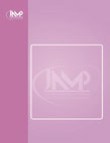A Study on the Quality of Study Skills of Newly-admitted Students of Fasa Medical University, 2012
Author(s):
Abstract:
Introduction
Some students attribute their academic failure to such factors as low aptitude, unavailability of resources, and bad luck. However, we can dare to say that the most important factor playing a role in academic success is students’ little acquaintance with learning and study skills. This study aimed at examining the quality of study skills in newly-admitted students of Fasa Medical University so that the results can be used in holding teaching courses in study skills.Methods
The present study is a cross-sectional descriptive study. The sampling was done of all the newly-admitted students in the first semester of 2012-13 academic year including 94 students of Medicine, Nursing and Laboratory Technology. The data were collected through a questionnaire, consisting of two parts. The first part included items on demographic information of the subjects (such as sex, field of study, number of hours dedicated to studying, student’s rank in Konkour, and the National University entrance exam. The second part was composed of 19 special items on such domains as ‘Time management’, ‘Concentration’, ‘Class note-taking’, ‘Studying’ and ‘Taking exams’ with 4, 5, 4, 3, 3 items, respectively. The checklists were filled in using Likert scale. The collected data was then analyzed using an SPSS 14, through which descriptive statistics as mean, standard deviation and multiple regressions were obtained. Moreover, the data were analyzed using Independent Sample T and ANOVA tests.Results
The results showed that the range of the students’ study skills was 2.35, being rather below the normal level; the highest mean belonged to ‘concentration’(2.56), but the lowest mean was that of ‘time management’ (2.05). Through ANOVA test, it was also shown that there was no significant difference between the students of Medicine, Nursing and Laboratory Sciences regarding their scores on ‘study skills’ as (p=0.646). In addition, through independent sample t-test, it was shown that there was no significant difference between the subjects’ ‘sex’ and ‘study skills’ as the p-value was 0.584. On the other hand, through multiple regressions, the results indicated that there was a significant difference between ‘Taking exams’ and ‘Studying’ (p=0.0003), between ‘Class note-taking’ and ‘‘Taking exams’ (p=0.0004), between ‘Concentration’ and ‘Taking exams’ (p=0.00025), and between ‘Time management’ and ‘Taking exams’ (p=0.00001). Overall, Class note-taking’ was proved to have the greatest effect on ‘Taking exams’ (B=1.58).Conclusion
Regarding the very important role of study skills in learning, it is recommended that ‘study skills’ and ‘study habits’ courses be included in the students’ curriculum formally or implemented as workshops for students.Language:
English
Published:
Journal of Advances in Medical Education & Professionalism, Volume:2 Issue: 1, Jan 2014
Pages:
45 to 50
magiran.com/p1217539
دانلود و مطالعه متن این مقاله با یکی از روشهای زیر امکان پذیر است:
اشتراک شخصی
با عضویت و پرداخت آنلاین حق اشتراک یکساله به مبلغ 1,390,000ريال میتوانید 70 عنوان مطلب دانلود کنید!
اشتراک سازمانی
به کتابخانه دانشگاه یا محل کار خود پیشنهاد کنید تا اشتراک سازمانی این پایگاه را برای دسترسی نامحدود همه کاربران به متن مطالب تهیه نمایند!
توجه!
- حق عضویت دریافتی صرف حمایت از نشریات عضو و نگهداری، تکمیل و توسعه مگیران میشود.
- پرداخت حق اشتراک و دانلود مقالات اجازه بازنشر آن در سایر رسانههای چاپی و دیجیتال را به کاربر نمیدهد.
In order to view content subscription is required
Personal subscription
Subscribe magiran.com for 70 € euros via PayPal and download 70 articles during a year.
Organization subscription
Please contact us to subscribe your university or library for unlimited access!


